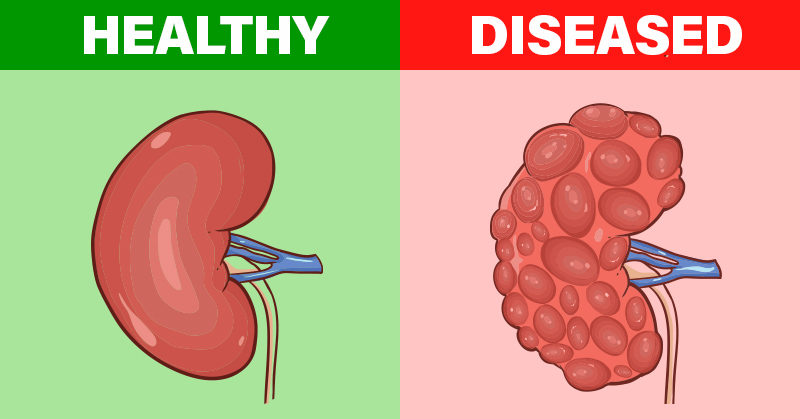Your kidneys are an important organ in your body. They filter out wastes and extra fluid from your body, control your blood pressure and pH levels, make red blood cells, and keep your bones healthy [1]. Kidney damage, then, has a profound impact on your health. Your kidneys are vital to your overall health, and as such, it’s important that you look after them. You may not realize, however, that some of your daily habits may be causing kidney damage.
Common Habits that Cause Kidney Damage Over Time
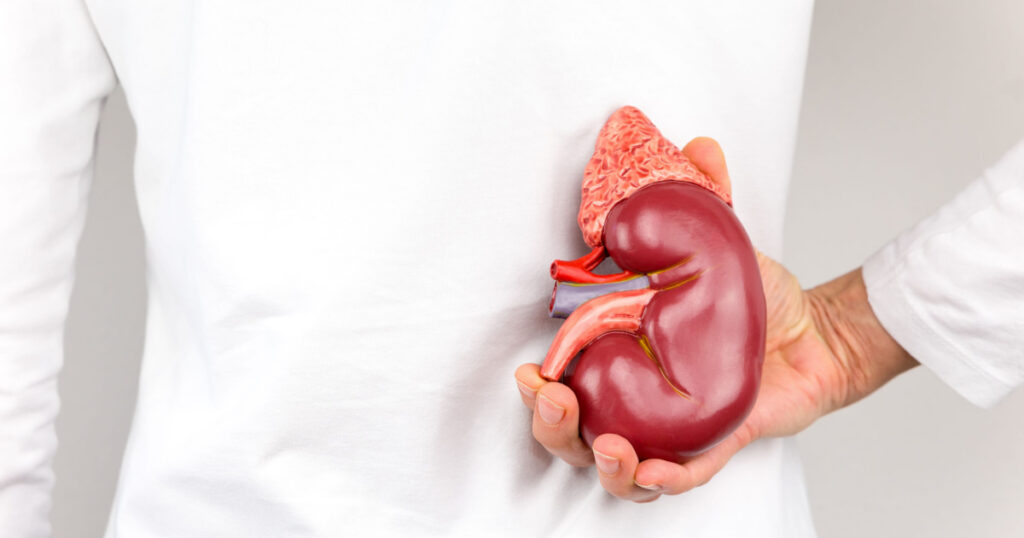
Several common daily habits could actually be damaging your kidneys. Luckily, it’s not too late to unlearn these damaging behaviors.
1. Taking Too Many Painkillers
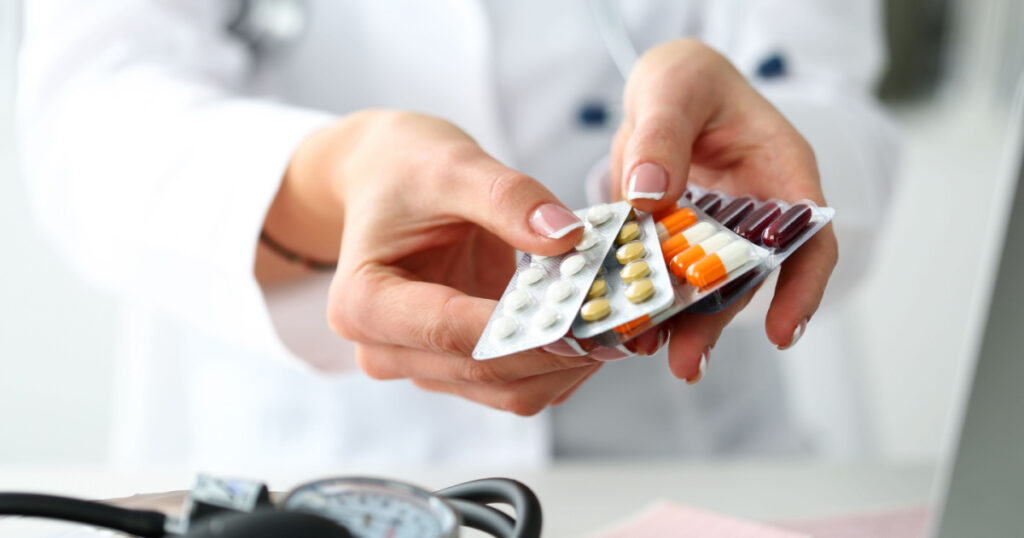
In North America, non-steroidal anti-inflammatory drugs (NSAIDs) are easily available over-the-counter. Using them regularly can put a lot of pressure on your kidneys. Over time, this overuse puts you at an increased risk for renal failure [2]. To prevent kidney damage, reduce your use of NSAIDS, and never go above the recommended dosage.
2. Eating Too Much Salt
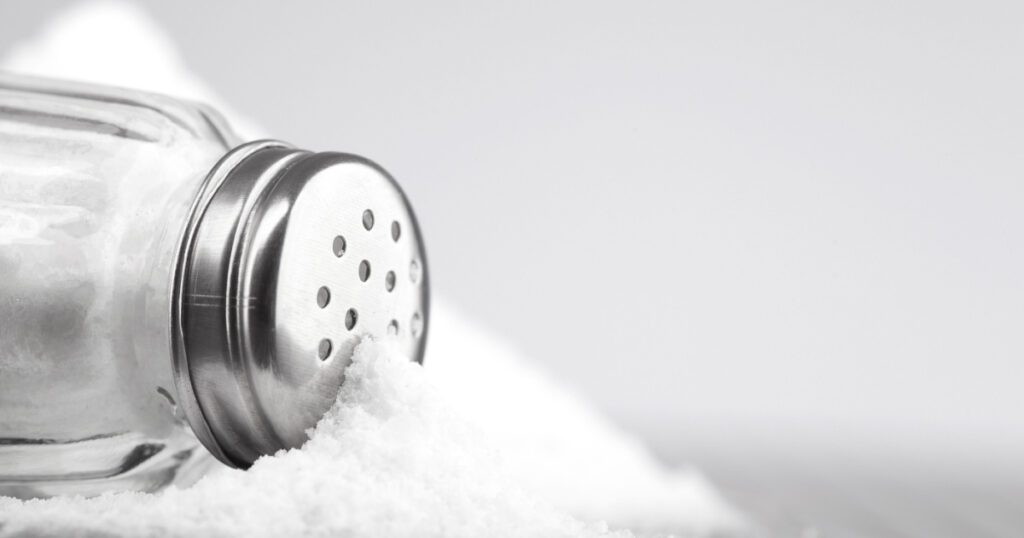
In the Western world, the average person eats approximately ten grams of dietary salt per day. This far surpasses the five-gram per day limit set out by the World Health Organization. Consuming too much sodium can increase your blood pressure, which in turn, harms your kidneys. For people who are already suffering from chronic kidney disease, reducing their sodium intake can help make their treatment more effective. For those who do not already have kidney damage, reducing your sodium intake can reduce your risk of future problems [3].
3. Not Drinking Enough Water
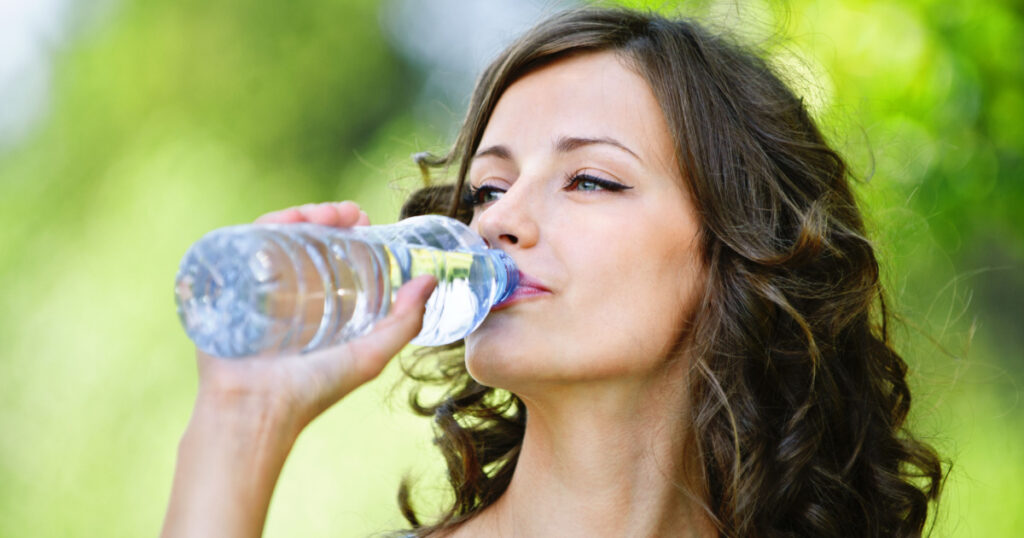
Dehydration can cause a buildup of wastes and acids in the body. This can clog the kidneys with myoglobins (aka muscle proteins). Dehydration can also lead to kidney stones and urinary tract infections, both of which can cause kidney damage if left untreated. When you drink enough water, kidney stones cannot form as easily because the stone-forming crystals cannot stick together. Water also helps dissolve antibiotics that treat urinary tract infections, which makes them more effective. Finally, water helps you make more urine to flush germs. You can tell if you are adequately hydrated by looking at the color of your urine. You likely need to drink more water if it is a very dark yellow. Pale yellow urine is a sign that you’re drinking enough. If it is dark yellow, no matter how much you drink, you should talk to your healthcare practitioner [4].
Read More: 7 early warning signs that cancer is growing inside your kidneys
4. Eating Too Much Sugar
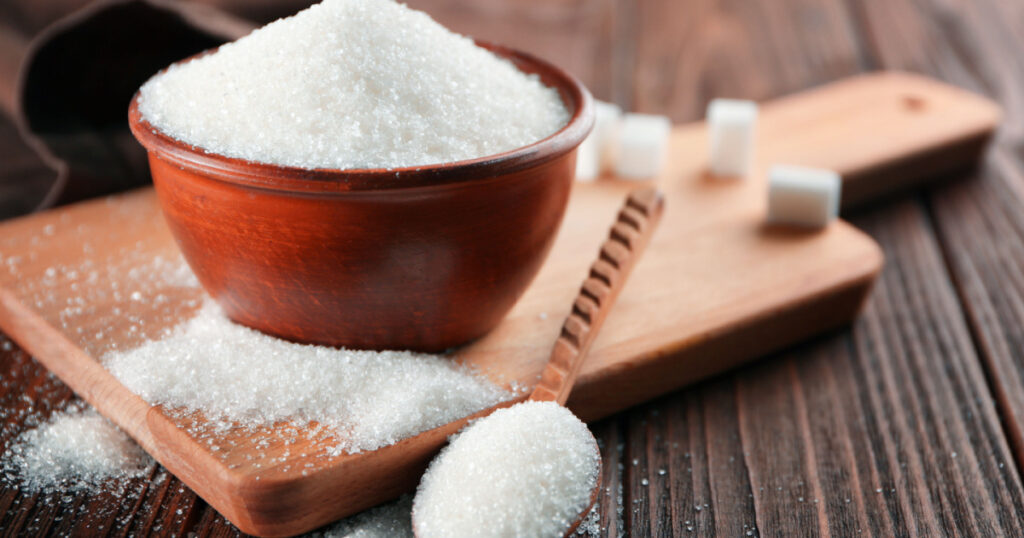
Sugar is not harmful to the kidneys in and of itself, but it can cause other health issues that can lead to kidney damage. Most notably, consuming a diet high in sugar and excess calories contributes to obesity, which is a potent risk factor for kidney disease. This is because it increases the risk of developing diabetes and hypertension. Both of these conditions have a direct impact on the development of chronic kidney disease and end-stage renal disease [5]. Do your best to limit the amount of sugar in your diet. Avoid sugar-sweetened beverages like soda and juice, limit the number of sweets you eat, and watch out for “hidden” sugars in processed foods like condiments, breakfast cereals, and white bread.
5. Smoking
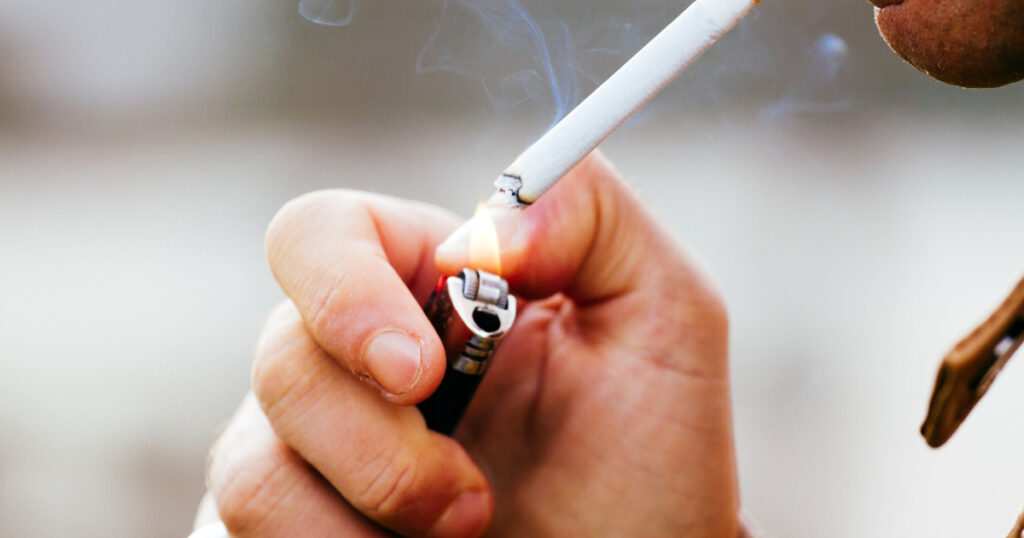
Not only is smoking bad for your heart and lungs, but it can also accelerate the progression of chronic kidney disease (CKD). People who smoke and have CKD are more likely to have protein in their urine, which is a sign of kidney damage [6]. While this may not apply to those who do not have CKD, smoking should still be avoided for obvious reasons.
6. Drinking Too Much Alcohol

Your kidneys can process small amounts of alcohol, but regular heavy drinking impairs their ability to function. Excess alcohol consumption can cause low concentrations of key electrolytes in your blood and severely alter your body’s acid/base balance. Alcohol can also disrupt the hormonal control mechanisms that govern kidney function. All of these effects can lead to chronic liver disease or even acute renal failure [7].
7. Not Sleeping Enough

A 2015 study found that women who slept less than five hours per night had a 65 percent greater risk of rapid kidney decline than those who slept seven to eight hours per night. One reason for this is that your circadian rhythm regulates your kidney function. The kidneys work differently during the night when you’re sleeping because the demands on your body are different. “We are a sleep-deprived society,” the researchers said. “The concern is that sleep deprivation will lead to a decline in kidney function.” [8]
Read More: How Excess Sugar Can Impact Your Brain, Liver and Kidneys
8. Too Much Sitting

Exercise improves a number of metabolic factors, including blood pressure and insulin resistance, and lowers your risk for obesity. By lowering these factors, you effectively lower your risk for kidney damage. Conversely, being sedentary for long periods of time has been shown to increase your risk for kidney disease [9].
9. Eating Processed Foods
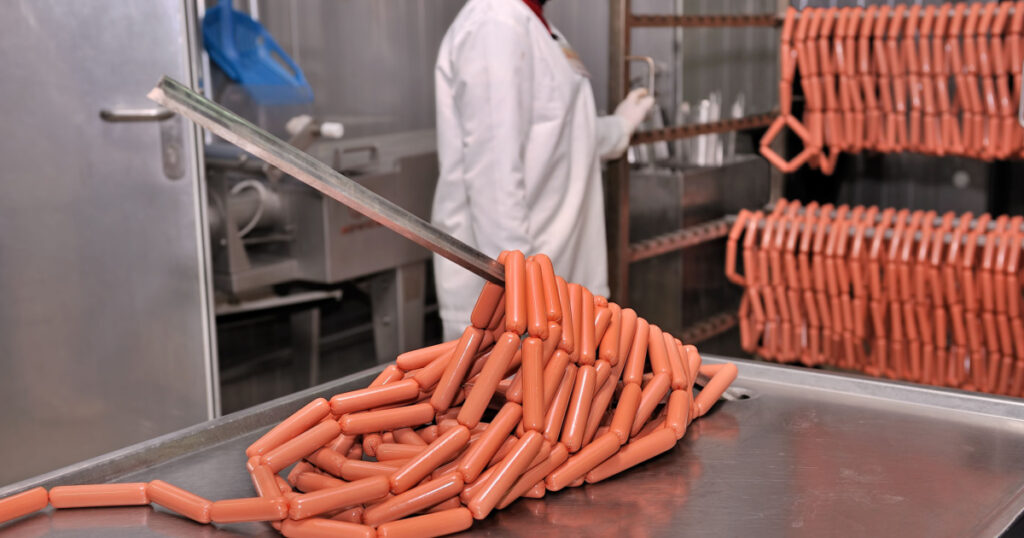
Not only are processed foods high in sodium, but they also contain large amounts of phosphorus. Although phosphorus is an essential nutrient, too much of it can cause kidney damage in those with existing CKD. Thus, it is particularly important for people with chronic kidney disease to limit the amount of processed foods in their diet to avoid high phosphorus intake [10].
How to Prevent Kidney Damage
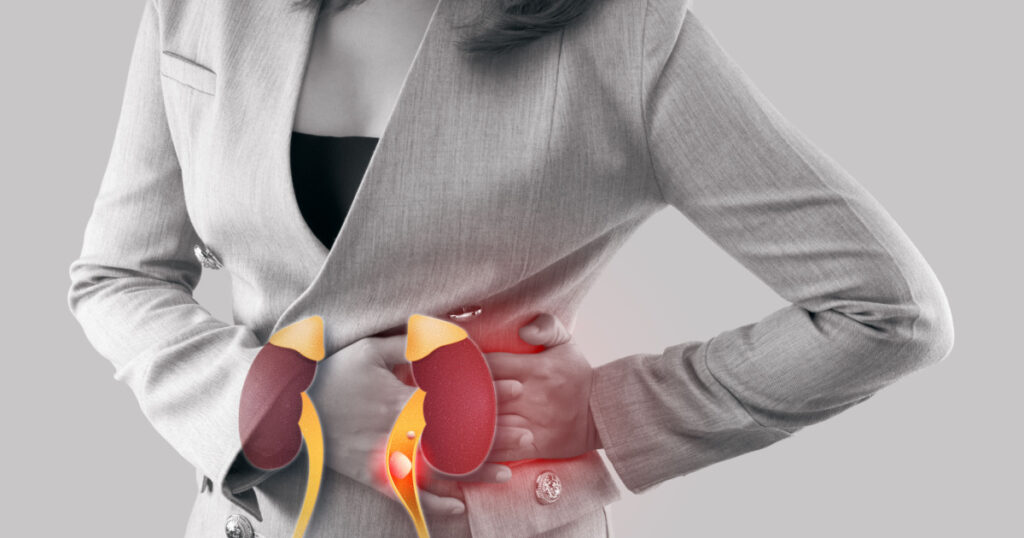
The good news is, that preventing kidney damage and promoting kidney health is fairly simple. Following a healthy lifestyle will not only prevent kidney damage, but it will keep the other organs in your body healthy as well. Just a few small changes can have a dramatic impact on your health.
Following these guidelines to improve your kidney health:
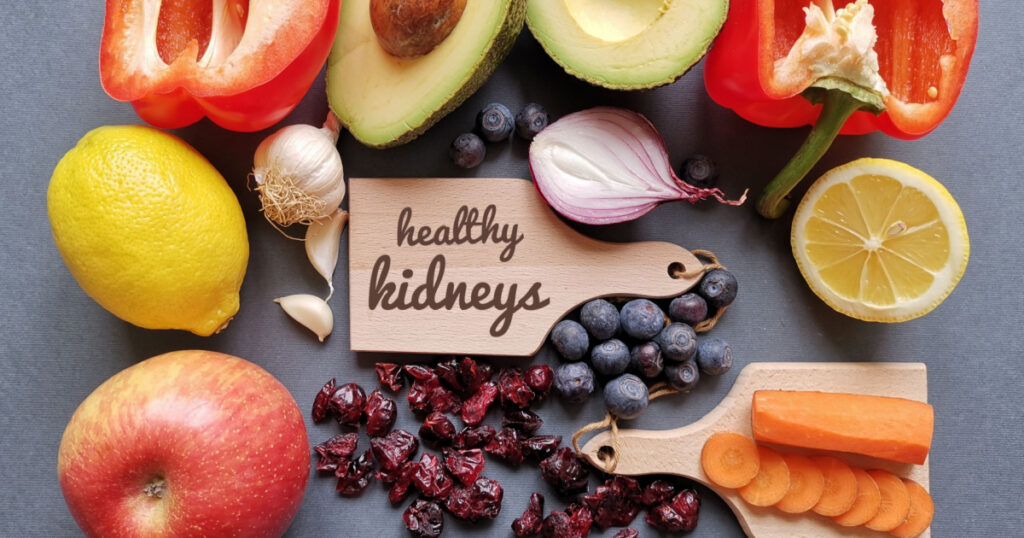
- Eat a healthy diet that contains a lot of fruits and vegetables
- Avoid processed foods that are high in sugar and sodium
- Aim to get between seven and eight hours of sleep every night
- Drink plenty of water throughout the day
- Avoid sitting for prolonged periods of time.
- Include physical activity in your day whenever possible. Though don’t excessively overtrain as this can, albeit rarely, leat to a condition known as rhabdomyolysis.
- Avoid risky behaviors like smoking or drinking excessive amounts of alcohol.
- Avoid using over-the-counter pain medications as much as possible [11].
Read More: If Your Kidneys Are in Danger, the Body Will Show these 10 Signs
This article was originally published on October 15, 2020, and has since been updated.
Sources
- “Top 5 Jobs Kidneys Do.” National Kidney Foundation
- “Significant Acute Kidney Injury Due to Non-steroidal Anti-inflammatory Drugs: Inpatient Setting.” NCBI. Mehul Dixit, et al. April 2010.
- “Body Fluid-Independent Effects of Dietary Salt Consumption in Chronic Kidney Disease.” NCBI. Jetta J. Oppelaar and Liffert Vogt. November 2019.
- “Can Dehydration Affect Your Kidneys?” National Kidney Foundation. April 16, 2018.
- “Obesity and Kidney Disease.” NCBI. Csaba P. Kovesdy, et al. 2017.
- “Smoking A Risk Factor for Progression of Chronic Kidney Disease and for Cardiovascular Morbidity and Mortality in Renal Patients—Absence of Evidence or Evidence of Absence?” ASN Journals. Orth, Stephan R and Hallan, Stein I. January 2008.
- NIH
- “Understanding Sleep Problems — The Basics.” WebMD. WebMD Editorial Contributors
- “Physical Activity in the Prevention of Chronic Kidney Disease.” NCBI. Craig S. Stump. August 1, 2011.
- “Dietary Phosphorus Intake and the Kidney.” NCBI. Alex R. Chang and Cheryl Anderson. November 15, 2017.
